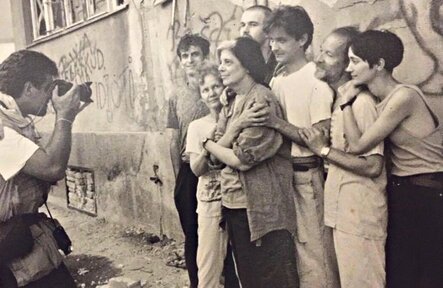On pain and peace – Der Spiegel (René Pfister, Maximilian Popp) interviewed former U.S. National Security Adviser H.R. McMaster:
‘DER SPIEGEL: The assumption in the West has always been that Putin is a nefarious but rational actor. Is that true?
McMaster: Putin is rational, but he is also obsessed. He’s obsessed with restoring Russia to national greatness. And his pattern of behavior has been pretty consistent. Even before he took power in 2000, he presided over the reduction of Grozny to rubble and the deaths of 80,000 civilians in the Chechen war. He helped Syrian leader Bashar Assad commit serial episodes of mass homicide. What he is doing to Kharkiv and Mariupol is Aleppo-izing them. It is very important to recognize that Putin carried out cyberattacks and had journalists and opposition members murdered because he thought he could get away with it. If you look at the sanctions imposed on Russia after the annexation of Crimea in 2014, you have say: They were anemic.
DER SPIEGEL: What does that mean for the future?
McMaster: Putin has felt up to this point that the consequences would be relatively easy to bear. I think that has turned out not to be the case. This time, there has been a very strong and unified voice. I think we are on a course to reestablish deterrence. When I look at Putin and his best friend, Chinese President Xi Jinping, I think that we could be on the cusp, if we remain resolute, to win Cold War 2. I think that Putin is in a very weak and perilous position. And I think we need to hang the lodestone of Russia’s invasion of Ukraine around Xi Jinping’s neck.’
(…)
‘DER SPIEGEL: Have you been surprised by the weakness the Russian military has shown?
McMaster: I was not surprised. The reason is that you have had a corrupt regime in Russia since 2000. To think that wouldn’t affect the military is illogical. There is a lack of professional leadership and a strong chain of command where leaders eagerly seek responsibility and are trusted with relative autonomy to make decisions in combat. What we are seeing is a force that is not trained to deal with difficult situations. If the reports are accurate, it seems as if many Russian soldiers don’t believe in the mission. And they don’t believe in the government that sent them there to fight and to potentially make the ultimate sacrifice for a mission that they don’t believe in. There’s an old saying that soldiers don’t fight because of what’s in front of them, they fight because what is behind them. And that is coming true now. But that doesn’t mean that the Russians can’t inflict a great deal of damage on Ukraine. It is to be feared that they will compensate for their ineptitude with indiscriminate firepower directed against civilian populations.
DER SPIEGEL: Are you saying that Putin has no choice but to further escalate the war?
McMaster: He does have the option to withdraw. But of course he’s unlikely to do that, because I’m sure he equates failure in Ukraine with the end of his 20-year rule in Russia. And there’s more than that. Putin has looted the state. He’s rumored to be the richest man in the world. But he can only access that wealth if he’s in power. I think it is unlikely he will do that, but he may be forced to do it. War is fundamentally a question of wills. I think the Ukrainians, over time, at continued high cost to them, sadly, will be able to convince the Russians that they cannot accomplish their objective of bringing Ukraine permanently under their control.
DER SPIEGEL: Is it possible to negotiate peace with Putin? McMaster: It depends on how much pain Russia is feeling. We need to convince Russia that it cannot accomplish its objectives through coercion or the use of force. That why it is so important to provide Ukraine with the capabilities essential for them to defend Kyiv and Odessa.’
(…)
‘DER SPIEGEL: Trump has called Putin a "genius." Is it a positive flip side of this war that some Republicans are breaking away from Trump? McMaster: This means that more and more American people are understanding that our security is inextricably connected to the security of our partners across the free world, particularly in NATO and, of course, Ukraine. We have lived through a series of traumas since 2000 – the wars in Afghanistan and Iraq, the financial crisis, the coronavirus pandemic. The resilience of democracies, unlike autocracies, is that they have the ability to self-correct.’
Read the interview here.
Syria had become a metaphor. What’s happening there is of absolutely no interest to anybody outside the region. Till the Middle East explodes once again of course.
The strategy ‘peace through pain’ can take a long time. It seems to be strategy of Putin, but perhaps also Biden’s.
The urge to arm the Ukrainians better reminds me of the 90s and the urge to arm the Muslims in Bosnia better. We know the outcome.
For now we are just waiting for a famous intellectual from the UK, Germany or the US to stage Waiting for Godot in Kiev. Or maybe it’s too early for that.
